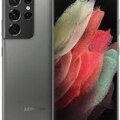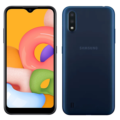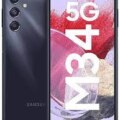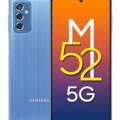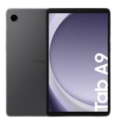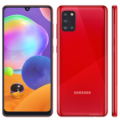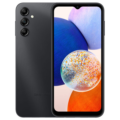- Home
- All Products
- Mobiles
- Samsung Galaxy Z4 Price & Specs
Samsung Galaxy Z4 Price & Specs


-
Processor: Quad-core 1.5 GHz
-
RAM: 1GB
-
Storage: 8GB
-
Display: 4.5 inches
-
Camera: 5MP
-
Battery: 2050mAh
Specs
General
| Device Type | Smart Phone |
| Model | Samsung Galaxy Z4 |
| Announced | 26 May, 2024 |
| Released | 26 June, 2024 |
| Status | Available |
| Price | 14800 |
Network
| 2G Network |
GSM 850 / 900 / 1800 / 1900 - SIM 1 & SIM 2 (dual-SIM model only) |
| 3G Network |
HSDPA 900 / 2100 |
| 4G Network |
LTE (unspecified) |
| SIM <strong>SIM</strong> (Subscriber Identity Module) is a small card that contains mobile network subscriber's account information. This allows the phone using the card to attach to a mobile network. The SIM card is most commonly associated with GSM and UMTS mobile networks. Moving a SIM card from one phone to another allows a subscriber to switch mobile phones without having to contact their mobile network carrier. SIM cards can also be used by a phone to store limited amounts of data, such as phone numbers and text messages. | Micro SIM |
| Dual SIM | Yes |
Design
| Type <strong>Design Type</strong> called form factor refers to a mobile phone's size, shape, and style as well as the layout and position of major components of phone. There are three major form factors seen in mobile phones => bar phones, folding phones and sliding phones. | Bar |
| Dimensions | 132.9 x 69.2 x 10.3 mm (5.23 x 2.72 x 0.41 in) |
| Weight | 143 g (5.04 oz) |
| Colors |
Black, Gold |
Display
| Display Type <strong>Display Technology => </strong> A number of display technologies and types used in mobile phones => TFT (Thin Film Transistor), IPS (In-Place Switching), OLED (Organic Light Emitting Diode), AMOLED (Active-Matrix Organic Light-Emitting Diode), Super AMOLED (an even advanced version of AMOLED), Resistive Touchscreen (Resistive touchscreens contain two layer of conductive material with a very small gap between them which acts as a resistance), Capacitive Touchsceen (Capacitive touchscreen technology consists of a layer of glass coated with a transparent conductor) | IPS LCD |
| Size | 4.5 inches, 57.6 cm2 (~62.7% screen-to-body ratio) |
| Resolution | 480 x 800 pixels, 5:3 ratio (~207 ppi density) |
| Display Colors <strong>Display Colors</strong> is refers to the number of different shades of colors that the screen is capable of displaying => 64K colors, 256K colors and 16 million colors, Obviously 16M is highest available range of colors and better than others. | 16M |
| Pixel Density <strong>Pixel Density (PPI)</strong> is refers to the concentration of pixels on a particular display, measured in pixels per inch (ppi). Pixel density is calculated by dividing the diagonal pixel resolution of a display by its diagonal size, higher pixel density better display quality. | (~207 ppi density) |
Software
| Operating System <strong>OS => </strong> Every computer system run on a base software called Operating System (OS). Operating System controls all basic operations of the computer (such as smartphone, PDAs, tablet computers and other handheld devices). The Operating System allows the user to install and run third party applications (apps), apps are used to add new functionality to the device. | Tizen 3.0 |
Hardware
| CPU <strong>CPU</strong> (Central Processing Unit) mostly known as processors, CPU processes instructions in order to carry out certain functions that make your device operate properly. Processors are often described as the brain of computers, smartphones and tablets, Smartphones and tablets rely on processors to carry out their every task, Processors are an incredibly important factor in selecting any type of computing device, including your smartphone. | Quad-core 1.5 GHz |
| RAM (Memory) <strong>RAM</strong> (Random Access Memory) is a type of computer memory that can be accessed randomly, any byte of memory can be accessed without touching the preceding bytes that allows information to be stored and accessed quickly from random locations. RAM is the most common type of memory found in computer systems, smartphones, tablets and other electronic devices. | 1 GB |
| Internal Storage <strong>Internal Storage</strong> is a data storage space (flash memory) mostly used in smartphones, tablets and other electronic devices where operating system, apps, music, photos, videos, files and other user data Is stored. | 8GB |
| Card Slot <strong>Memory Card Slot</strong> is a special slot for inserting a memory card. Memory cards allow you to expand the phone's built-in memory, A memory card (sometimes called a flash memory card or a storage card) is a small storage medium used to store data such as text, pictures, audio, and video, for use on small, portable or remote computing devices such as mobile phones, mp3 players, digital cameras. | |
| Sensors <strong>Sensors</strong> are electronic components that detects and responds to some type of input from the physical environment. The specific input could be light, heat, motion, moisture, pressure and location, The output is generally a signal that is converted to use in computing systems, a location sensor, such as a GPS receiver is able to detect current location of your electronic device. |
Accelerometer, proximity |
Camera
| Primary <strong>Camera</strong> is able to capture photographs and usually videos, The most important characteristics of a camera are the resolution (measured in megapixels), lens focus type (fixed or automatic), higher megapixel cameras are known to capture higher quality photos, but not always a good measurement of the photos quality. | 5 MP |
| Secondary | 5 MP |
| Video | 720p@30fps |
| Camera Features |
Dual-LED flash, panorama, HDR |
| Flash <strong>Flash Light => </strong> There is commonly two types of flash lights are used in camera mobile phones, LED Flash (LED flash offers lower power consumption with drive circuitry that takes up very little room, LEDs can be strobed faster than any other light source), Xenon Flash (xenon flash produces an extremely intense full-spectrum white light for a very short duration) |
Connectivity
| Wi-fi <strong>Wi-Fi</strong> is a popular wireless networking technology using radio waves to provide high-speed network connections that allows devices to communicate without cords or cables, Wi-Fi is increasingly becoming the preferred mode of internet connectivity all over the world. | Yes |
| Bluetooth <strong>Bluetooth</strong> is a wireless communications technology for exchanging data between mobile phones, headsets, computers and other network devices over short distances without wires, Bluetooth technology was primarily designed to support simple wireless networking of personal consumer devices. | Yes |
| GPS <strong>GPS</strong> The Global Positioning System is a satellite-based radio navigation system, GPS permits users to determine their position, velocity and the time 24 hours a day, in all weather, anywhere in the world, In order to locate your position, your device or GPS receiver must have a clear view of the sky. | Yes |
| Wi-fi Hotspot | |
| USB | Yes |
| NFC <strong>NFC</strong> (Near field communication) is a set of standards for smartphones and similar devices to establish peer-to-peer radio communications with each other by touching them together or bringing them into proximity, usually no more than a few inches. | |
| Wireless Charging <strong>Wireless Charging</strong> (Inductive Charging) uses an electromagnetic field to transfer energy between two objects. This is usually done with a charging station. Energy is sent through an inductive coupling to an electrical device, which can then use that energy to charge batteries or run the device. |
Data
| GPRS <strong>GPRS</strong> (General Packet Radio Service) is a packet oriented mobile data service on the 2G and 3G cellular communication system's global system for mobile communications (GSM), Generally, GPRS is used for the purpose of wireless data transfer, such as sharing pictures and videos or browsing the Internet via a mobile phone connection. | |
| EDGE <strong>EDGE</strong> (Enhanced Data GSM Environment) is a wireless network technology generally considered the next step in the 2G network offers data transfer rates up to four times faster than ordinary GSM networks, Generally, EDGE is used for the purpose of wireless data transfer, such as sharing pictures and videos or browsing the Internet via a mobile phone connection. | |
| Speed | HSPA 42.2/5.76 Mbps, LTE Cat4 150/50 Mbps |
Messaging
| SMS <strong>SMS</strong> (Short Messaging Service) is a text messaging service component of phone, Web, or mobile communication systems. It uses standardized communications protocols to allow mobile phone devices to exchange short text messages over the networks. | Yes |
| MMS <strong>MMS</strong> (Multimedia Messaging Service) is a standard way to send messages that include multimedia content (audio clips, video clips and images) to and from mobile phones over wireless networks using the WAP protocol. | |
| Email <strong>Email</strong> (Electronic Mail) is a system for receiving, sending, and storing electronic messages, Similar to a letter, email is text messages that may contain files, images, or other attachments sent via the internet to a recipient by using applications and software prograps. An email address is required to receive email, and that address is unique to the user. | |
| IM <strong>IM</strong> (Instant Messaging) is an exchange of text messages through a software application, it enable you to create a kind of private chat room with another individual in order to communicate in real time over the Internet. | Yes |
Media
| Audio Playback | |
| Video Playback | |
| FM Radio | |
| Loudspeaker |
Battery
| Battery Type <strong>Battery Type => </strong> Cell phones run on various kinds of batteries depending on the manufacturer, phone size or shape and features. There are basically four types of cell phone batteries => Lithium Polymer, Lithium Ion, Nickel Metal Hydride and Nickel Cadmium. | Li-Ion (Lithium Ion) |
| Capacity <strong>Battery Capacity</strong> is a measure (typically in Amp-hr) of the charge stored by the battery, and is determined by the mass of active material contained in the battery. The battery capacity represents the maximum amount of energy that can be extracted from the battery under certain conditions. | 2050 mAh |
| Placement | Removeable |
Table of Contents
Samsung Galaxy Z4 Price in Pakistan
Samsung Galaxy Z4 price in Pakistan is probably lower, though, as it is now an older model and has been replaced by several newer Samsung Mobiles like Samsung Galaxy Grand 2 and Samsung Galaxy J5 2017 but the new Samsung Galaxy Z4 price in Pakistan is around 14,800 Check websites like iShopping, OLX, or Daraz, to find the most recent Samsung phones prices in Pakistan. Remember that prices on these websites can vary, and you should always exercise caution when buying from individual sellers.
When was Samsung Z4 launched?
May 19, 2017.
Is the Samsung Z4 waterproof?
Yes, the Samsung Z4 is waterproof.
What is the refresh rate of the Samsung Z4?
120Hz
Is Samsung Z4 dual sim?
Yes, Samsung Z4 dual sim.
Is Samsung Z4 wireless charging?
Yes, Samsung Z4 wireless charging.
What is the display size of Z4?
6.39-inch.
How many watts is the Samsung Z4 charger?
25W.
Is Samsung z4 4G?
Yes, Samsung z4 4G.
What is the price of the Samsung Z4 in Pakistan?
The price of the Samsung Z4 in Pakistan is 14,800,
Disclaimer: The Samsung Galaxy Z4 prices listed on this page are sourced from local shops and dealers and are updated daily. While we strive for accuracy, we cannot guarantee that the Samsung Galaxy Z4 price information provided on this page is 100% correct, as human error is possible. We recommend that you visit your local shop for exact pricing information. Thank you for being so understanding.

